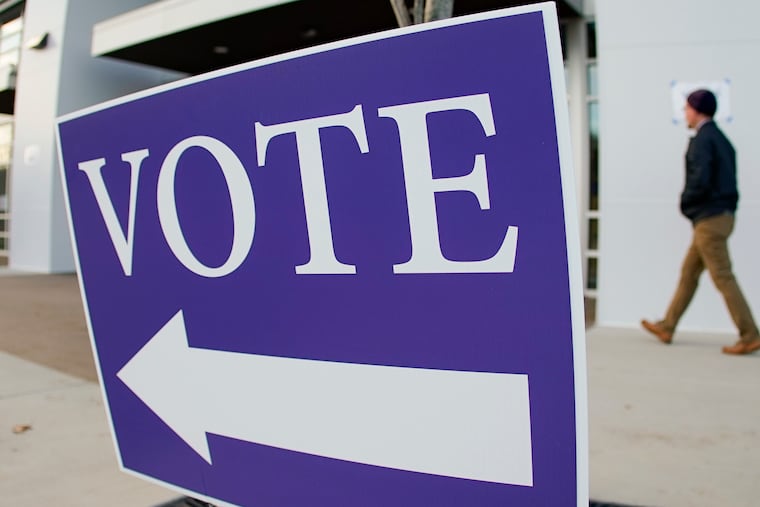Pennsylvania voters would benefit from an open primary system | Editorial
At a time of deep political division, open primaries could make races more competitive, reduce partisanship, and boost voter participation.

The Pennsylvania legislature is only scheduled to be in session for three days in September, but among the pressing issues it needs to take up is changing the date of the 2024 primary election.
The current primary date is April 23, which conflicts with the Jewish holiday of Passover. A state Senate government committee voted last month to move the primary to March 19, while a competing bill in the House would move the primary to April 2. A date should be selected soon to secure voting locations, schedule poll workers, and allow candidates to plan their campaigns.
Moving the primary to a different date makes sense so as not to effectively disenfranchise voters because of their religion. While lawmakers are at it, a similar argument could be made for Pennsylvania to also move from a closed to an open primary.
» READ MORE: Let's open primaries to all, and watch real change happen | Editorial
There are different types of open primary systems, but the general result is to allow voters who are not registered to one of the two major parties to cast a ballot on primary day. Just as the state should not penalize voters for their religious beliefs, it should also not prevent them from voting because of their political affiliations.
The number of independent voters has grown in recent years across the country and in Pennsylvania. Nationwide, the percentage of voters who identify as independent is much larger than the percentage of registered Democrats or Republicans.
More than 1.3 million Pennsylvanians are registered as independents, nonaffiliated to any party or to a third party. That’s about 14.5% of voters in the state who are shut out from participating in the primary.
Primary elections are publicly funded, held in public locations, and staffed by publicly paid elected officials. Taxpayers spend more than $20 million on elections in Pennsylvania, yet independent voters have no say in the primary they help fund. David Thornburgh of Ballot PA, a coalition of business and civic groups that supports open primaries, calls it “taxation without representation.”
Pennsylvania is one of just nine states that have a fully closed election system. Most states have some form of an open primary. One recent poll, albeit small and unscientific, found that 73% of voters surveyed supported moving to open primaries in Pennsylvania.
Even better, there is bipartisan support for open primaries in Harrisburg. State Sens. Dan Laughlin (R., Erie) and Lisa Boscola (D., Northampton) introduced a bill in the spring that would allow voters who are registered as independents or no affiliation to cast either a Republican or Democratic ballot.
Laughlin said closed primaries ignore the voices of more than a million independent voters, which “is just wrong.” Boscola said open primaries will boost voter participation.
Alan Novak and T.J. Rooney, the respective former heads of the Republican and Democratic Parties in Pennsylvania, back open primaries as a way to foster more competitive races and keep both parties from appealing to their more extreme supporters, thus narrowing the political divide and dysfunction in state and federal governments.
» READ MORE: Philadelphia’s voter turnout is down. That’s bad for democracy. | Editorial
Indeed, a recent study found that states with open primaries that advance the top two vote-getters to the general election — even if they are from the same party — produced candidates who are more moderate.
Open primaries in Philadelphia would give Republicans and independents a voice in the city’s current one-party rule. Likewise, an open primary would make it harder for extremist candidates such as Doug Mastriano, who won the Republican nomination for governor last year only to lose in a landslide in the general election to Democrat Josh Shapiro.
At a time of deep political division, open primaries could reduce partisanship and boost voter participation. Pennsylvania lawmakers must act to allow all voters to participate in the electoral process.